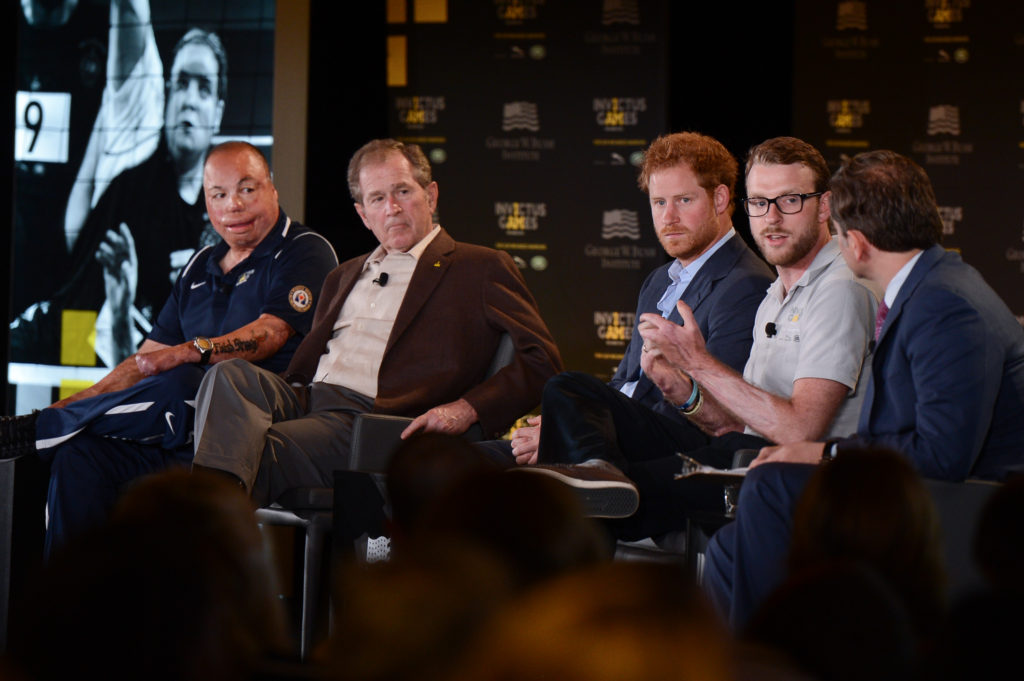 It’s Tough to Speak Up – Reducing the Stigma of Invisible Wounds
It’s Tough to Speak Up – Reducing the Stigma of Invisible Wounds
Open and Candid Discussion at the Invictus Games Symposium on Invisible Wounds Presented by the George W. Bush Institute
Service members are put through some of the most intense and challenging training. A training that prepares them for physical and mental toughness. But it is that intensity and mental toughness that may also make it hard to recognize or acknowledge issues associated with post-traumatic stress or mental health. For all our international service members, it’s too often a challenge disregarded.
“With my fighting background, I never thought I would be in a position to question my mental stability,” said Paul Warren, Invictus Games 2016 Australian Team Captain.
With representatives from all fourteen nations competing at the Invictus Games, the Invictus Games Symposium on Invisible Wounds Presented by The George W. Bush Institute offered a unique international perspective on the obstacles faced by returning servicemen and women. Throughout four hours of discussion, policy makers, competitors, medical and health care experts discussed solutions to help returning servicemen and women overcome the invisible wounds of war, specifically traumatic brain injury, post-traumatic stress, and other psychological health issues.
Prince Harry, President Bush and Laura Bush began the conversation with a discussion about how society must rid itself of the stigmas associated with psychological health issues in order to find a solution. President Bush and Prince Harry both acknowledged that many times invisible wounds are not treated in the same way as visible wounds.
“Invictus 2014 smashed stigma on visible injuries. This year can do the same on invisible injuries,” Prince Harry said at the symposium.
Competitors and caregivers discussed the barriers to seeking care for their condition, including stigmas and stereotypes and the stress on caregivers.
Invictus Games 2016 competitor Sgt. Israel Del Toro, United States Air Force, and Invictus Games 2014 competitor LCpl John James “JJ” Chalmers talked about their invisible wounds and the role sport played in their recovery.
“It’s harder on the families because they are the ones that are with you every day,” said Sgt. Israel Del Toro, who was burned over 80 percent of his body and given a 15 percent chance to live as a result of an IED blast in Afghanistan in 2005.
Medical and policy experts offered insights about the scale and scope of invisible wounds and asserted that improved diagnostics are needed to better understand PTS and TBI and individualized care is critical. Several influencers concluded the symposium with suggestions for navigating and improving systems of care – including support for caregivers.
“You were courageous before you got hurt, you’re courageous now, and seeking help is a sign of courage,” said President George W. Bush, Honorary Chairman of the Invictus Games 2016.


